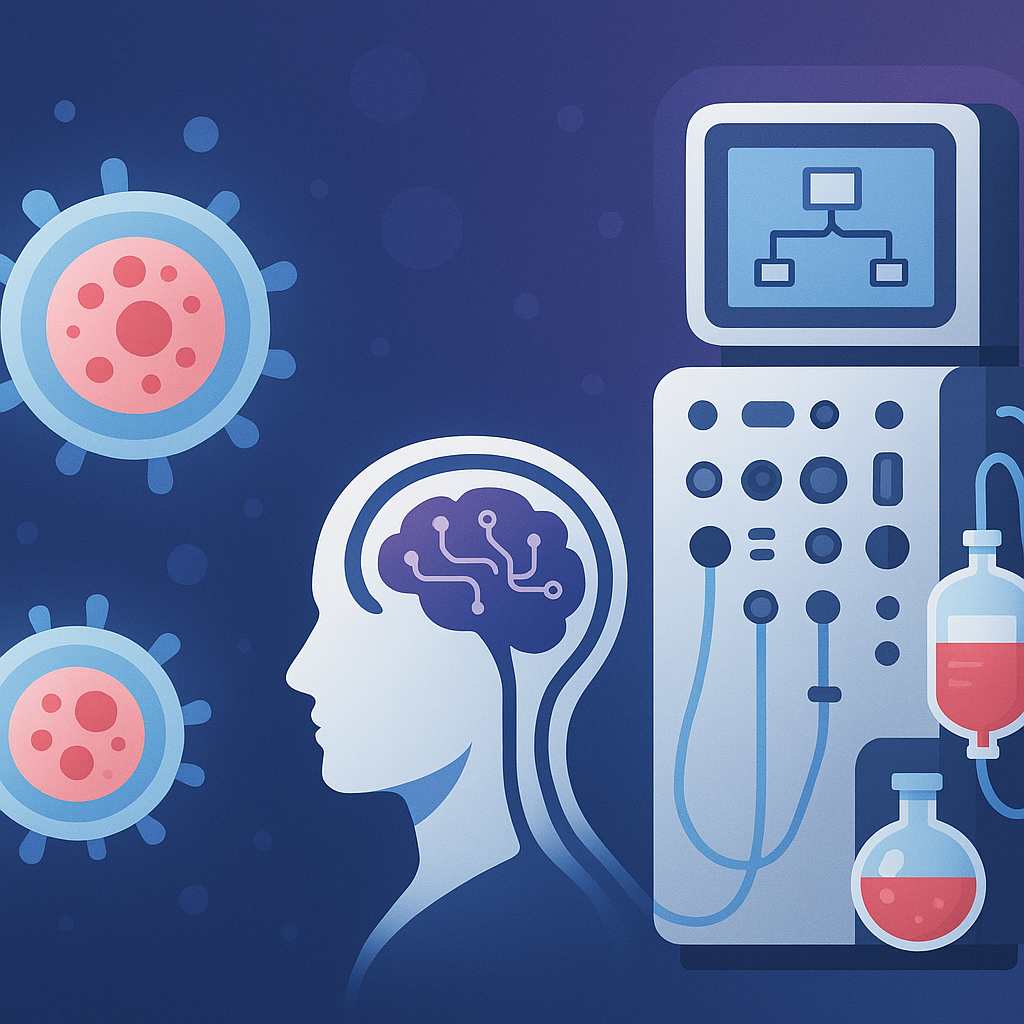NEXCELL - AI for Optimizing End‑To‑End Cell Processing in Clinical Cell Therapy

In the context of the NEXCELL project, we invite outstanding early‑career researchers (PhD or Post‑doctoral level) to join our institute in partnership with a global leader in biotechnology to leverage AI for optimizing life-saving personalized cell and gene therapy. In a major research project, you will spearhead the development and application of cutting‑edge AI methods - including deep learning, LLMs, probabilistic and symbolic modeling - for mechanical and biological system monitoring and state estimation in next‑generation automated cell processing instruments. This interdisciplinary role provides the perfect environment for your doctoral or postdoctoral qualification, and career development in both academia and industry.
Postdoc on AI for Personalized Cell and Gene Therapy
- How to apply: Application portal
- Deadline: August 31st
PhD on AI for Personalized Cell and Gene Therapy
- How to apply: Application portal
- Deadline: August 31st
More Information
NEXCELL is a collaborative research project aimed at developing a revolutionary next-generation cell and gene therapy platform for point-of-care therapy. The project aims to produce personalized cell therapies directly at the point of care, thereby improving access to life-saving therapies for cancer patients. As part of the project, we are developing a probabilistic digital twin of the complex NEXCELL automated cell processing instrument system that intelligently monitors technical and biological processes. Using Bayesian AI methods, critical process parameters are reconstructed from huge log files and quality controls are automated. Large language models and bio-informatics algorithms enable the automatic documentation and analysis of cell fluorescence imaging data to characterize the therapeutics produced. The system can predict process deviations, optimize maintenance intervals, and generate regulatory-compliant reports. The innovation lies in the world’s first integration of hybrid probabilistic models that capture both mechanical device components and biological cell growth dynamics. Four years of project work are laying the foundation for a new era of automated, AI-supported cell therapy production. The developed AI technologies are applicable in other areas of biotechnology and industry 4.0.
Your Tasks
- Design and implement deep learning, probabilistic, and symbolic‑learning models for real‑time multi-modal sensor fusion (mechanical and biological), anomaly detection, and latent state estimation in dynamic automated cell processing instrument environments
- Adapt and extend large language models and symbolic reasoning tools to interpret process logs, design predictive diagnostics, and support explainable decision‑making for bio-process engineers
- Develop and implement novel methods for longitudinal cell culture analysis spanning fluorescence cell imaging, single cell as well as bulk analysis
- Collaborate with industry partners and domain experts to iteratively refine models for real‑world deployment
- Explore reinforcement learning and simulation strategies for trajectory tracking and adaptive control in bio-processes with high uncertainty and complex dynamics
- Drive high‑impact open research: contribute to open‑source tool kits, co-author peer‑reviewed conference and journal publications, present results internationally, and mentor junior students—laying the groundwork for an internationally visible scientific profile
Your Profile
For doctoral candidates:
- Completed scientific university degree (diploma, master’s or comparable degree) in computer science, mathematics, a comparable field, or an applied science (engineering, biology, …) with strong skills in data analysis and/or machine learning (with very good results)
For postdoctoral candidates:
- Completed PhD in computer science, mathematics or a comparable field, or an applied science (engineering, biology, …) with strong skills in data analysis and/or machine learning (with very good results)
Both positions:
- (desirable) several years of experience in data analysis / probabilistic modeling / AI
- (desirable for two of the positions) experience in single cell analysis (e.g., flow cytometry, FACS, CyTOF)
- Proficiency in written and spoken English
- Basic knowledge of German or willingness to learn it in a short period of time
- Willingness to strongly commit to work on your own scientific qualification
- Excellent ability to work with deadlines
- Communication skills for the presentation of research results
- Ability to work in interdisciplinary teams
We Offer
- A stimulating, interdisciplinary research environment in a growing, ambitious, team-oriented research group on knowledge-centric AI and bio-medical, environmental, and behavioral research
- Integration in AI and bio-technology expert networks including the newly established AI Space at the University of Marburg, and the Hessian Center for Artificial Intelligence (Hessian.AI, TU Darmstadt)
- An extensive international network including Stanford, UC San Diego, McGill (Canada) or Lund (Sweden)
- Access to state-of-the-art technology, large-scale compute clusters (e.g., via Hessian.AI), as well as excellent research infrastructure
- Strong and active support for personal and academic development, including leadership in research projects and group management, teaching experience and supervision of academic theses